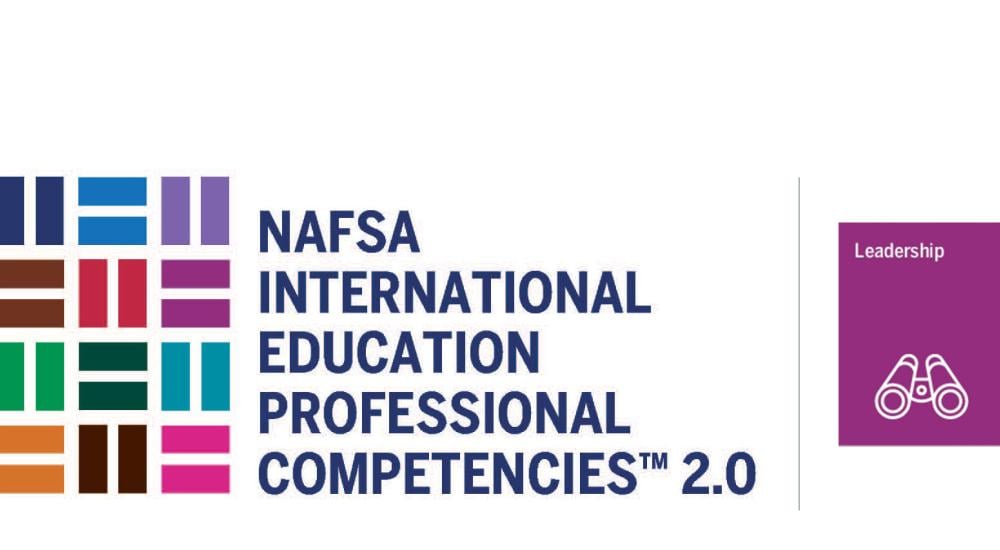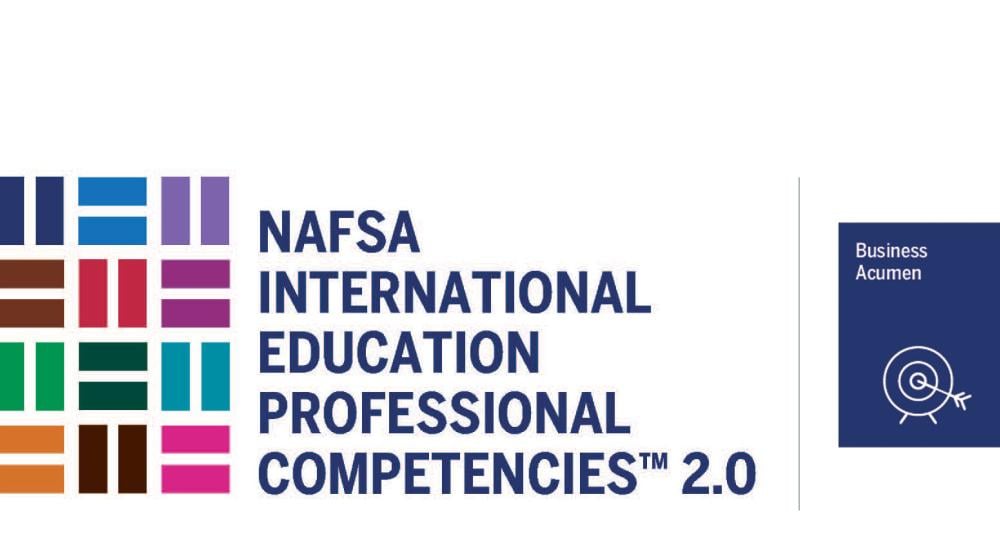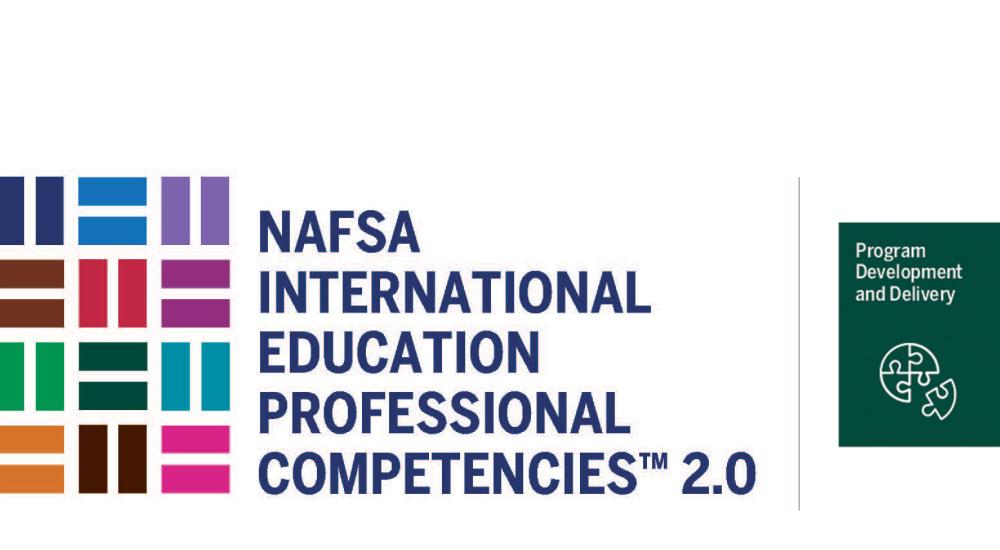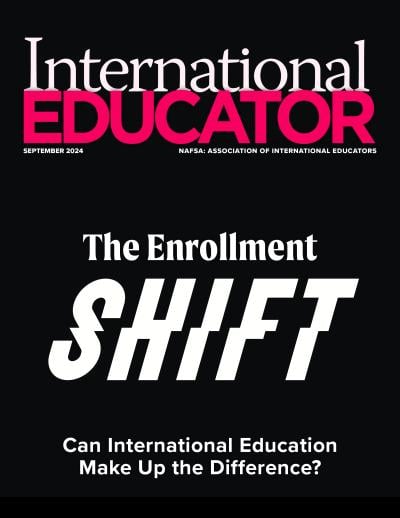Reflections on the NAFSA IE Competencies: Teaching, Learning, and Facilitation
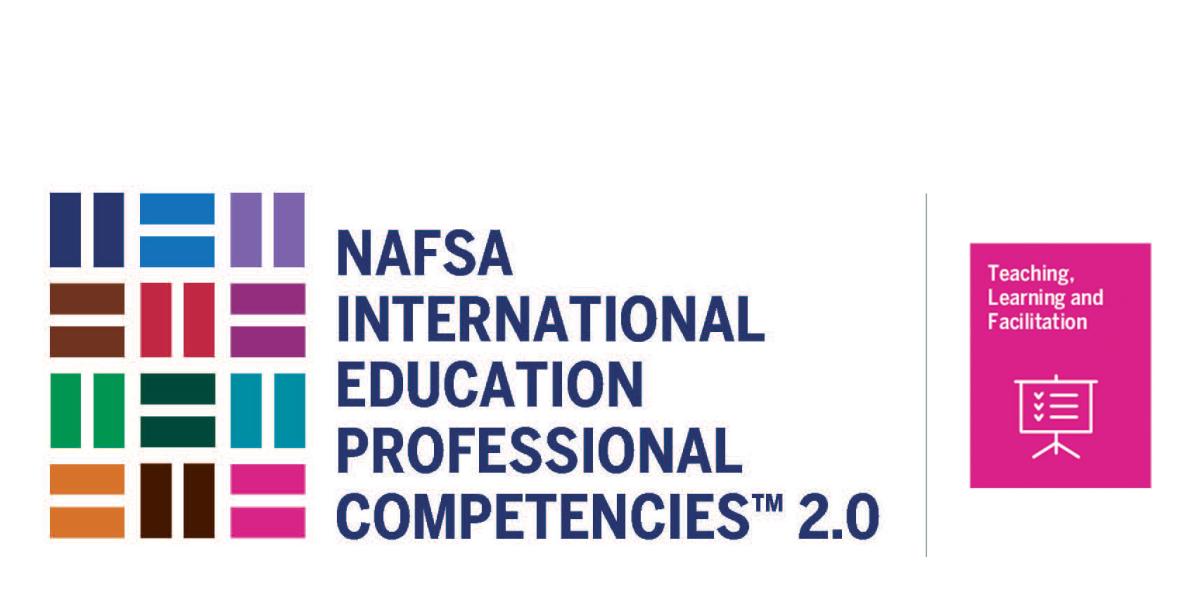
Editor’s note: This article is one in a new series for 2023 that explores one of the 12 International Education Professional Competencies 2.0 in each issue of International Educator. Each written by a NAFSA member, the articles cover how that competency is critical to the future of the field and what it looks like in practice.
Global issues and crises of the past few years have demonstrated the need for international educators to work across cultures and geographic borders, underscoring the role of teaching, learning, and facilitation. Arguably, learning is the most important component of this competency framework, and international educators have a vital role to play in developing and sharing effective modalities of communication.
International educators work to acknowledge and integrate various academic disciplines, stakeholder groups, and skill sets as they are understood and practiced around the globe. We must understand the importance of research and scholarship to a field and develop well-tailored resources to share that information. By doing so, we will produce learning that reflects the belief that all education systems have equal value although they impart knowledge in different ways.
The power to design and deliver content for and with participants, both virtually and face-to-face, is a critical competency for international educators. It requires specific skills and abilities. Defining learning outcomes and employing an experiential learning methodology are critical to ensuring that international educators can successfully facilitate intercultural learning.
The Key to Developing Successful Learning Opportunities
When I need to design a learning activity, regardless of the scope of the work, the most important components are the learning outcomes to be achieved by the participant, the faculty member, and the institution. The participant outcomes can be broadly stated initially, but with each iteration those goals should become more specific. This is followed by an agreement among faculty and the international educator on how these outcomes will be measured to determine if the participant has accomplished them. It is only then that specific learning activities and curricula should be created. There will always be several possible curricular approaches that can be taken to reach the stated outcome(s), and each stakeholder in the educational experience may have a different form of measuring and delivering that outcome.
In each of these steps there are many opportunities where values, based upon culture, academic discipline, and learning, need to be articulated. Facilitating these conversations is imperative, and I believe as international educators we are exceptionally qualified to lead them. For example, in a public health course with a travel component, an international educator can collaborate with faculty to develop culturally appropriate research methods for the participants pre-travel, orient and prepare them for travel, and assist in developing activities that use the pedagogy of the place while in country to contextualize the experience for themselves and those at home who do not travel. In a virtual classroom an international educator can facilitate conversations among faculty in different locations on preferred educational practices for each, and how to establish a safe and thriving teaching environment for all.
Experiential Learning Methodology
We all agree the role of the international education professional is to promote the interdisciplinary aspects of intercultural and global learning while supporting the disciplinary content the faculty wants to deliver. However, we must keep the participant at the forefront of this learning. Each participant brings personal history with them to a learning exercise, and it is impossible for any facilitator or faculty to fully know these experiences. We as educators must keep our assumptions about prior shared cultural experiences to a minimum and promote learning by using the experiential learning model.
It is essential to include all four stages of the experiential learning cycle (concrete experience, reflective observation, abstract conceptualization, and active experimentation) in individual and long-term educational activities. Doing so allows participants to understand the content and apply the applications to their own distinct situation, while honoring their values and cultural context.
If we agree that learning is at the heart of educational exercises and that individuals and communities learn differently, then using an experiential learning methodology skillfully will value all perspectives and provide a deeper, richer outcome.
In viewing all of the international education competencies, I believe this one is at the heart of all of them and is why we do the work we do: teaching, learning, and facilitation. •
Linda Drake Gobbo’s career in international education spans four decades, including teaching and advising graduate students at SIT Graduate Institute and leading the faculty team that developed the field’s first graduate degree. She retired as associate provost at Antioch University New England in 2022. Read more about her many accomplishments and involvement with NAFSA over the years.
About International Educator
International Educator is NAFSA’s flagship publication and has been published continually since 1990. As a record of the association and the field of international education, IE includes articles on a variety of topics, trends, and issues facing NAFSA members and their work.
From in-depth features to interviews with thought leaders and columns tailored to NAFSA’s knowledge communities, IE provides must-read context and analysis to those working around the globe to advance international education and exchange.
About NAFSA
NAFSA: Association of International Educators is the world's largest nonprofit association dedicated to international education and exchange. NAFSA serves the needs of more than 10,000 members and international educators worldwide at more than 3,500 institutions, in over 150 countries.
NAFSA membership provides you with unmatched access to best-in-class programs, critical updates, and resources to professionalize your practice. Members gain unrivaled opportunities to partner with experienced international education leaders.


